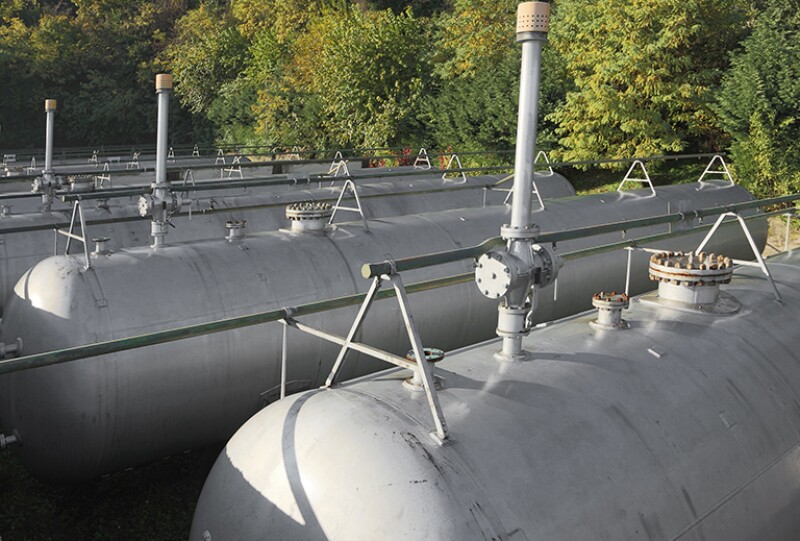For more than a century, the oil industry magnificently improved the lives and health of humankind. That fact lies beyond debate. Our industry simultaneously expanded and made profits yet progressively protected water, land, people, and air from its potent products. Those gains help support a moral case to expand some use of fossil fuels but not to release them. Now it is time to lean in to solving the last step of our direct emissions.
The oil industry has long lived and grown under tightening demands. In 1919, just a handful of months after Texas empowered its Railroad Commission (RRC) to regulate oil and gas, the agency promulgated its first well-spacing rule. Wells were to be spread apart not on principles of efficient recovery but on protection of groundwater and against fires. Four years later, the same state made it a crime to pollute surface water with oil. It even held corporate officers personally responsible for the pollution.
As effects accumulated, so did protections of surface and subsurface—from oil down rivers to oil in dirt pits, in lined pits, in covered pits, and in closed tanks. At this point, any release of oil more than a couple of barrels requires public reporting in most jurisdictions. In Texas, for example, just half a barrel of oil released from an onshore storage tank mandates a public report, and US federal waters require reporting of any release that makes sheen on the water.
By the 1950s, most US states required cementing casing through the freshwater table, and modern plugging regulations date from the 1960s. Perhaps belatedly, the health and safety of workers became a buzz word and then a corporate imperative but now an easy habit. Notwithstanding the pandemic of “temporary” flaring in recent years, decades of both punitive and positive policies aimed to reduce air pollution.
Our predecessors often did not welcome the new obligations, but they thrived even as they conformed, cajoled, and adapted. Generations ago, the first serious efforts by the RRC to impose basic regulation on the oil industry sparked an epic legal battle ostensibly and oddly over the 14th Amendment to the US Constitution. It seems that all industry, not just oil, lives in strife with regulators. Still, our predecessors’ lack of initiative followed first by resistance then lackluster diligence contributed to public disdain over the decades.
Their track record set up kneejerk and passionate distrust when the shale revolution began. Although controversy faded as fracturing contracted, more than 60% of Americans still believe that fracking harms the environment. Among 25 industries tracked by Gallup, the oil industry enjoys the fourth-highest disapproval rating among Americans, down from the number one slot a handful of years ago. College enrollment in fossil fuel programs has plummeted as, among other reasons, the youngest generation eschews our reputation ironically as we have become the cleanest version of ourselves yet.
We improved protections for everything our products could pollute. Now, our communities’ standards ask us to address the last, smallest, and least visible of our direct releases, namely fugitive natural gas. And there is no reason not to do it aggressively. Venting offers no righteous credit.
Fugitive natural gas constitutes a relatively minor piece of the greenhouse gas puzzle, but it still needs to be put in place. Accountability for our part will continue to increase, both from reporting pressures and from third-party satellite monitoring.
The economic benefits are about as invisible as the gas itself—completely obscured by noisy and imprecise measurements of both costs and produced volumes. Still, the fact of increased revenue (in many situations) cannot be denied; it is certain even if too small to measure and too small to calculate an economic return.
The biggest issue our industry faces is not merely the need to patch gathering lines, replace valves, or install combusters. The greatest issue is the fact that inaction by some of us on venting and flaring—as well as well plugging—further risks the social license for all of us to operate at all.
The fact that oil and gas have made people’s lives richer in the past does not alleviate our obligation to reduce harm; it aligns with the obligation to reduce harm. We will continue to produce in order to continue to meet human needs, even as the overall global use glacially slows and retreats. If we prize the good that we have done for the world, and if we want to maintain the right to continue serving, then we must tack aggressively into our responsibilities and our role in a changing world.

Dwayne Purvis, P.E., is a reservoir consultant, writer/speaker, and trainer based in Texas. He assists operators and investors in making circumspect decisions, especially in hard-to-understand reservoirs and complex situations. Over 25 years of practice and multiple leadership roles, Purvis has studied scores of fields and advised clients of all sizes. He graduated from Texas A&M University and is a member of AAPG, SEG, and SPEE, and is a 25-year member of SPE. He can be reached at dpurvis@dpurvisPE.com.

